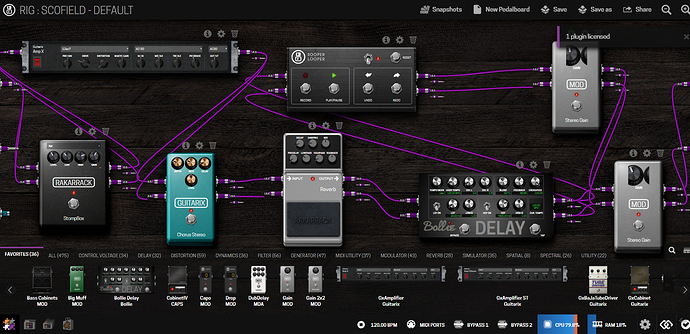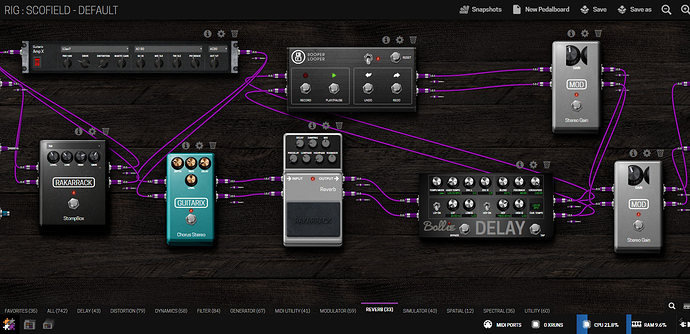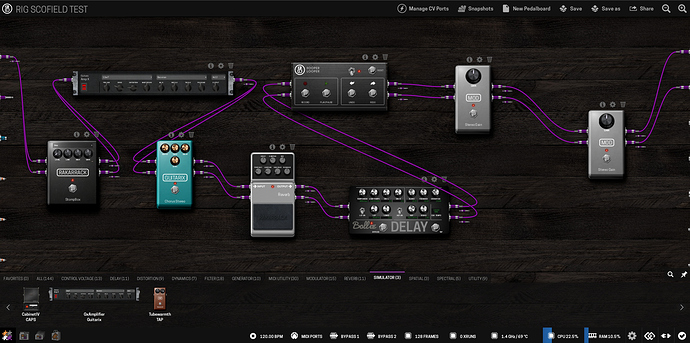(talking here about the new duox model, which is what you can buy today and will begin shipping very soon)
We did not make a comparison, but even when the CPU and other specifications would be the same, the performance for the MOD OS would be slightly better due to the entire OS being optimized for a specific device.
MODEP uses raspbian as a base right? The RT kernel certaily helps, and also removing everything not needed for audio and MIDI.
On paper, compared to the Pi4, the Duo X has 2 more cpu cores (the A53 “little” cpu of the A72/A53 big-little combo)
I can give you some stats regarding the Duo X, that you can compare with what you have.
Would be quite interesting to see how MODEP behaves, so please run these same commands and paste the output.
First, measuring “worst case latency” / jitter:
$ cyclictest --smp -p98 -D30s
policy: fifo: loadavg: 6.12 4.61 2.23 7/136 1416
T: 0 ( 1380) P:98 I:1000 C: 29990 Min: 4 Act: 4 Avg: 5 Max: 28
T: 1 ( 1381) P:98 I:1500 C: 19993 Min: 4 Act: 5 Avg: 5 Max: 20
T: 2 ( 1382) P:98 I:2000 C: 14995 Min: 4 Act: 4 Avg: 4 Max: 19
T: 3 ( 1383) P:98 I:2500 C: 11996 Min: 4 Act: 4 Avg: 5 Max: 18
T: 4 ( 1384) P:98 I:3000 C: 9996 Min: 5 Act: 10 Avg: 8 Max: 42
T: 5 ( 1385) P:98 I:3500 C: 8568 Min: 5 Act: 10 Avg: 8 Max: 24
2nd, boot time:
$ systemd-analyze time
Startup finished in 2.219s (userspace) = 2.219s
(this boot time includes starting usb gadget mode, jack, ttymidi, mod-host, peakmeters, CV stack and mod-ui as well)
and I am not sure what else to measure…
the MOD devices run at a static 48kHz / 128 audio rate, which is around 5ms internal latency (but ends up being more in reality because of JACK2 async mode plus a tiny bit of the I2S side of things)
from what I understand, I2S has less latency compared to USB


 One thing cool is Touchosc with Patchbox and the wifi hotspot. So you can’t really compare they are differents (a lot of things i would see on modduo software are in Modep/patchbox).
One thing cool is Touchosc with Patchbox and the wifi hotspot. So you can’t really compare they are differents (a lot of things i would see on modduo software are in Modep/patchbox).

